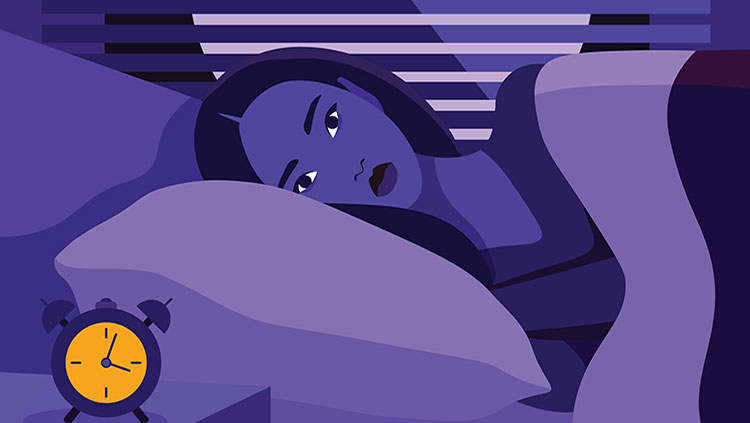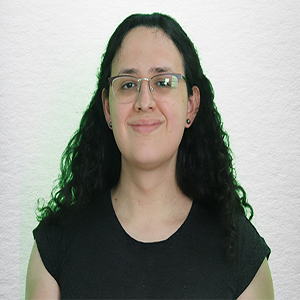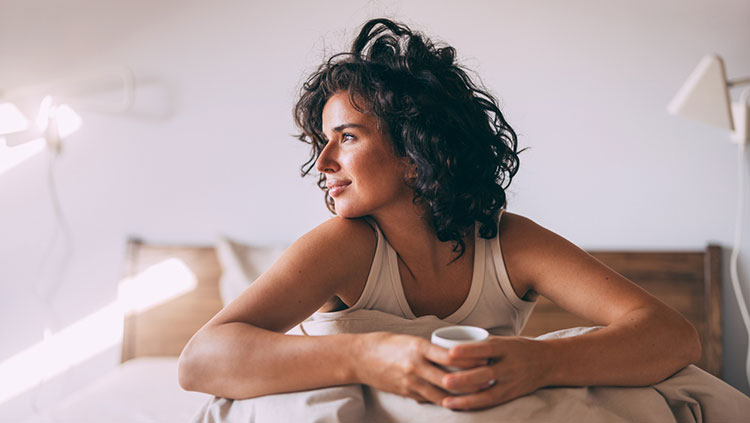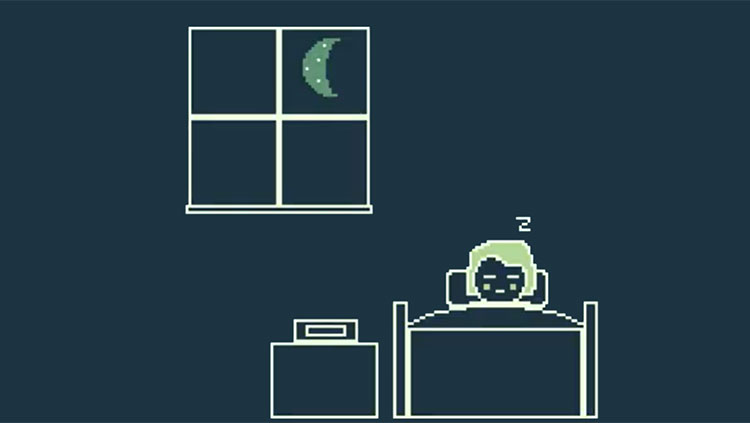How Stress and Anxiety Are Fueling Your Insomnia in the COVID-19 Pandemic
- Published2 Nov 2020
- Author Sophia La Banca
- Source BrainFacts/SfN

It was another sleepless night for Solange Ferreira, a massage therapist from São Paulo, Brazil. She had experienced insomnia before, but now it had a different cause. “It was the pandemic. It disturbed me,” she says. Solange would lay in bed for hours during the night, but, instead of resting, her mind would dwell on the news surrounding COVID-19. When she finally fell asleep, it would not last — a few hours later she’d wake up again. “I started to feel afraid of sleeping,” says Ferreira. “When night arrived, I wanted to cry because I knew how difficult it would be again.”
Ferreira’s situation is not unique. Studies in several countries point to an increase in cases of insomnia, unrestful sleep, or interrupted sleep — waking several times a night. “Having insomnia may add risk to chronic conditions, such as psychiatric and cardiovascular disorders,” says Dalva Poyares, physician and professor of sleep medicine at Universidade Federal de São Paulo. She notes robust immune system function requires a healthy sleep routine.
This may be especially important for patients fighting off COVID-19. A study at Wuhan Union Hospital surveying COVID-19 patients’ sleep after hospitalization found patients suffering from poor sleep had fewer immune cells in their blood, needed more time to recover, and were at higher risk of requiring intensive care.
The decrease in sleep quality can be explained, in part, by changes in lifestyle brought by stay-at-home orders and social distancing — including exercising less, following the news more closely, and spending more time in front of screens near bedtime.
Some groups seem to be more at risk than others. The financial crisis resulting from pandemic quarantines left many unemployed, and the financial burden that followed also impacts sleep quality. Those facing financial difficulties report sleep problems almost twice as frequently as people who don’t face those problems. But working can also be a risk factor. One in three healthcare workers on the frontline show insomnia symptoms — including fear of personal infection, isolation, lack of support, and uncertainty about safety measures in the pandemic.
Women experience more sleep issues than men. “Women’s response when facing stress is different than men’s. Also, depression and anxiety, which are associated with sleep disturbances, are more frequent in women,” explains Poyares. In the U.S., the prevalence of depression and generalized anxiety disorders are higher in women than in men. People with a previous history of sleep disorders may be the most likely to suffer. Those who have used sleeping pills are almost three times more likely to have sleep problems during the quarantine.
The Other Side of the Pillow
That’s not to say everyone is at risk for insomnia now. A closer look shows some people have no sleep issues, and a few are even sleeping better than before. Christine Blume, a researcher at the Centre for Chronobiology from the University of Basel, believes this is happening because people can live according to their circadian rhythm.
“We live in a restless society. People live with the pressure of being always available and we know this is one factor contributing to insomnia. Now, people are staying at home and everyone is being able to live according to their own rhythms rather than the rhythm that society and working hours impose on them,” she explains.
A survey in three European countries showed that, during the lockdown, people are sleeping more, and going to bed and waking up later on workdays. A similar result was obtained by analyzing the data from a smartphone app in China. Researchers believe, absent the pandemic, this delay would have been beneficial to our health, but “the effects of the pandemic may have masked this positive effect,” Blume concludes. She noted from the survey that though people are sleeping more, sleep quality is slightly reduced.
There are ways to keep the benefits from the flexible schedule without the sleep disturbances triggered by the pandemic. Sleeping and waking up at the same time every day, engaging in regular exercise, and getting sunlight outside can all help. Limiting news consumption and screen-time one or two hours before bedtime may help, too.
But professional help may be necessary for severe insomnia — insufficient sleep duration for three or more nights a week with no relief from behavioral interventions. Ferreira got support from a psychotherapist who helped her calm her thoughts about COVID-19. The psychotherapist also gave her a list of steps to follow every day before going to bed. “I am much better and I also could learn a lot about sleep and my health,” she says.
CONTENT PROVIDED BY
BrainFacts/SfN
References
American Psychiatric Association. (2013). Diagnostic and statistical manual of mental disorders (5th ed.). Arlington, VA: Author.
Barber, I. (2020). Sleep in a time of pandemic—A position statement from the national sleep foundation. Sleep Health, 6(3), 431–431. PubMed (32426445). doi: 10.1016/j.sleh.2020.05.003
Cellini, N., Canale, N., Mioni, G., & Costa, S. (2020). Changes in sleep pattern, sense of time and digital media use during COVID-19 lockdown in Italy. Journal of Sleep Research, 29(4), e13074. doi: 10.1111/jsr.13074
Crew, E. C., Baron, K. G., Grandner, M. A., Ievers-Landis, C. E., McCrae, C. S., Nadorff, M. R., … Hansen, K. (2020). The Society of Behavioral Sleep Medicine (SBSM) COVID-19 Task Force: Objectives and Summary Recommendations for Managing Sleep during a Pandemic. Behavioral Sleep Medicine, 18(4), 570–572. doi: 10.1080/15402002.2020.1776288
Fu, W., Wang, C., Zou, L., Guo, Y., Lu, Z., Yan, S., & Mao, J. (2020). Psychological health, sleep quality, and coping styles to stress facing the COVID-19 in Wuhan, China. Translational Psychiatry, 10(1), 225. doi: 10.1038/s41398-020-00913-3
Gualano, M. R., Lo Moro, G., Voglino, G., Bert, F., & Siliquini, R. (2020). Effects of Covid-19 Lockdown on Mental Health and Sleep Disturbances in Italy. International Journal of Environmental Research and Public Health, 17(13), 4779. PubMed (32630821). doi: 10.3390/ijerph17134779
Huang, Y., & Zhao, N. (2020). Generalized anxiety disorder, depressive symptoms and sleep quality during COVID-19 outbreak in China: A web-based cross-sectional survey. Psychiatry Research, 288, 112954–112954. PubMed (32325383). doi: 10.1016/j.psychres.2020.112954
Kessler, R. C., McGonagle, K. A., Zhao, S., Nelson, C. B., Hughes, M., Eshleman, S., … Kendler, K. S. (1994). Lifetime and 12-Month Prevalence of DSM-III-R Psychiatric Disorders in the United States: Results From the National Comorbidity Survey. Archives of General Psychiatry, 51(1), 8–19. doi: 10.1001/archpsyc.1994.03950010008002
Kessler, R. C., Berglund, P., Demler, O., Jin, R., Merikangas, K. R., & Walters, E. E. (2005). Lifetime Prevalence and Age-of-Onset Distributions of DSM-IV Disorders in the National Comorbidity Survey Replication. Archives of General Psychiatry, 62(6), 593–602. doi: 10.1001/archpsyc.62.6.593
Léger, D., Beck, F., Fressard, L., Verger, P., Peretti-Watel, P., & COCONEL Group. (2020). Poor sleep associated with overuse of media during the COVID-19 lockdown. Sleep, 43(zsaa125). doi: 10.1093/sleep/zsaa125
Liu, C. H., Stevens, C., Conrad, R. C., & Hahm, H. C. (2020). Evidence for elevated psychiatric distress, poor sleep, and quality of life concerns during the COVID-19 pandemic among U.S. young adults with suspected and reported psychiatric diagnoses. Psychiatry Research, 292, 113345–113345. PubMed (32745794). doi: 10.1016/j.psychres.2020.113345
Voitsidis, P., Gliatas, I., Bairachtari, V., Papadopoulou, K., Papageorgiou, G., Parlapani, E., … Diakogiannis, I. (2020). Insomnia during the COVID-19 pandemic in a Greek population. Psychiatry Research, 289, 113076. doi: 10.1016/j.psychres.2020.113076
Zhang, J., Xu, D., Xie, B., Zhang, Y., Huang, H., Liu, H., … Yuan, S. (2020). Poor-sleep is associated with slow recovery from lymphopenia and an increased need for ICU care in hospitalized patients with COVID-19: A retrospective cohort study. Brain, Behavior, and Immunity, 88, 50–58. PubMed (32512133). doi: 10.1016/j.bbi.2020.05.075
Also In Sleep
Trending
Popular articles on BrainFacts.org

















